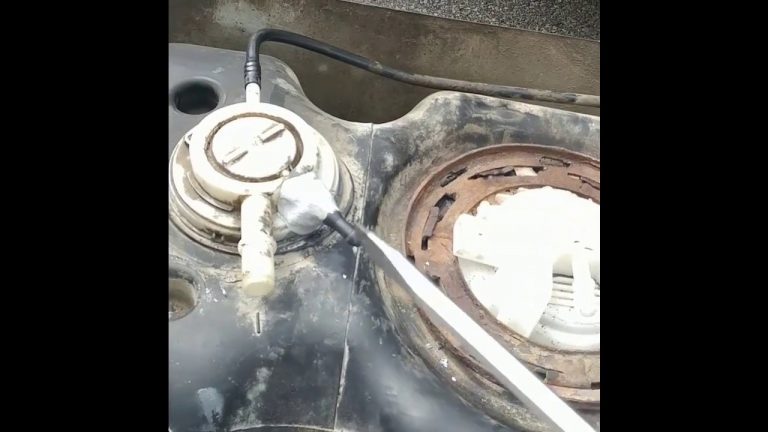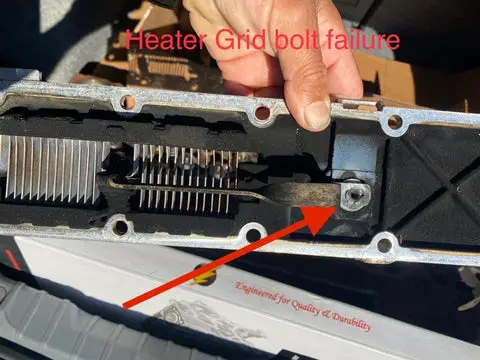Lug Nut Torque Specs Chevy Silverado 1500
The correct torque spec for the lug nuts on a Chevy Silverado 1500 is 95-105 ft/lbs. This is applicable to all wheel sizes between 16-20 inches, with different size lugs requiring different specs. It’s important to use the right torque when tightening lug nuts as over or under torquing can cause damage to the wheel and hub assembly, leading to uneven tire wear, premature bearing failure and other problems.
A good practice is to always use a torque wrench when attaching wheels to ensure that they are tightened properly and safely.
The lug nut torque specs for a Chevy Silverado 1500 are 95 lb-ft to 105 lb-ft. It’s important to ensure that the lug nuts are properly tightened, as an incorrect torque can lead to wheel imbalance and premature tire wear. When tightening the lug nuts, it’s important to follow a star pattern in order to evenly distribute the load across all of the lugs.
Taking these steps will help keep your wheels secure and provide you with safe driving conditions.
1999-2006 DIY Chevy Silverado Wheel REPLACEMENT (w/TORQUE)
What is the Lug Nut Torque for a 2015 Chevy Silverado?
The lug nut torque for a 2015 Chevy Silverado is determined by the size of the wheel used. Generally, it is recommended to use between 80 and 100 ft/lbs for 15-inch wheels, 90 to 120 ft/lbs for 16-inch wheels, 105 to 140 ft/lbs for 17-inch wheels, 130 to 150 ft/lbs for 18-inch wheels and 140 to 170 ft/lbs on 20-inch or larger wheels. It’s important that you use the correct torque when tightening your lug nuts in order ensure they are properly fastened and secure – this will help protect against dangerous situations such as tire blowouts or loose lug nuts falling off while driving.
When working with any vehicle, it’s always best practice to consult with an experienced auto mechanic before making any changes or adjustments yourself; they can provide valuable advice on what’s right for your particular car model.
What Do I Torque My Lug Nuts to on My Truck?
If you own a truck, it’s important to know how tight the lug nuts should be when changing a tire or replacing parts. When torquing your lug nuts on your truck, there is no single answer as this can vary based on several factors such as the size of the wheel and what type of vehicle you have. However, most trucks require between 80-90 foot pounds for their lug nuts.
To find out exactly how much torque is required for your particular model, consult your owner’s manual or contact an automotive specialist before making any adjustments. It’s also worth noting that while over-torquing may not cause significant damage to the wheel itself, it can lead to premature wear on other components like brake discs and suspension parts due to increased friction. Therefore, make sure you do not exceed the recommended torque specifications in order to ensure optimal performance from all aspects of your vehicle.
How Many Foot Pounds of Torque Do Lug Nuts Need on a Truck?
The specific amount of torque that lug nuts need on a truck can vary depending on the size, make and type of vehicle. Generally speaking, most domestic trucks will require between 80-100 foot pounds (ft-lbs) of torque while many import trucks may require up to 140 ft-lbs. It is important to always consult the owner’s manual or contact the manufacturer in order to determine an accurate number for your particular model.
Failure to properly tighten lug nuts can lead to serious problems such as wheel detachment which could cause major damage or even death if it were to occur while driving at high speeds. For this reason, it is always advisable that you invest in a good quality torque wrench and use it correctly so you know exactly how much force needs applied when installing wheels on your truck.
What is the Bolt Pattern on a 21 Silverado 1500?
The bolt pattern on a 21 Silverado 1500 is 6×139.7mm (6×5.5″). This bolt pattern is commonly used on many vehicles and can be found on most modern trucks, cars, SUVs, and some vans. The wheel studs or lug nuts are placed in a circle with six evenly spaced lugs around the circumference of the wheel.
It is important to note that this size will not fit all vehicles as some manufacturers may have different sizes for their own specific models. If you are unsure what your vehicle requires it’s always best to check with your local dealership before purchasing wheels or rims for your 21 Silverado 1500 as they will be able to provide you with the correct information regarding compatibility and sizing.

Credit: www.youtube.com
Chevy Silverado Torque Specs
The Chevy Silverado offers impressive power and torque specs, thanks to its 6.2L V8 engine that provides 420 horsepower and 460 lb-ft of torque. This powerful engine is able to provide up to 12,500 lbs of maximum towing capacity when properly equipped with the available Max Trailering Package. It also features a 10-speed automatic transmission for smooth shifts and increased fuel efficiency.
With these impressive specs, the Chevy Silverado is sure to tackle any hauling or towing job with ease!
Chevy 2500Hd Lug Nut Torque Specs
The recommended torque for the lug nuts on a Chevy 2500HD is 95 ft-lb. To ensure proper tightening of the lugs, it’s important to use a torque wrench and follow manufacturer specifications. This will ensure that your wheels are securely in place so you can drive safely.
2018 Silverado 1500 Lug Nut Torque
The 2018 Silverado 1500 requires a torque of 105 ft-lbs for the lug nuts when mounting new tires. It is important to ensure that all lug nuts are tightened to this specification in order to maintain proper wheel balance and safety of the vehicle. When changing out an old tire, it’s best practice to use a torque wrench, as over-tightening can strip threads or damage studs.
Conclusion
In conclusion, it is important to understand the torque specs of your lug nuts for optimal safety and performance. The Chevy Silverado 1500 specifically requires torqueing to 80-100 foot-pounds for standard lug nuts, and 110-125 foot-pounds for locking lug nuts. Always double check that you are using the correct size and type of nut before making any adjustments or repairs.





